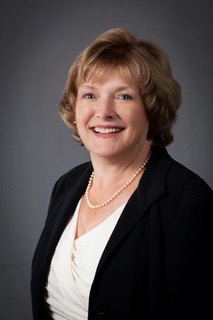Quick Takes
Carolyn Viall Donohue is a Subject Matter Expert Nurse Leader. Currently Executive Nursing Director with Medical University of South Carolina’s Children’s, Women’s, and Behavioral Health operations, she is responsible for the Nursing Department staff, budget, and resources for patient care delivery.
“We have learned a lot since March of 2020. We are doing everything we can right now and hoping that it will be a long time before we have to do this again.”
The COVID-19 pandemic is far from over. How have you dealt with it at MUSC?
For us, it is all about safety – patient safety and our care team members’ safety.
Our care team members understand how to handle patients who are COVID positive, or who might have COVID, with the predominant objective of safely dealing with our patient population.
In my particular specialty – Children’s, Women’s and the Institute of Psychiatry/Mental Health – COVID is not the predominant thing for us. But our care team members know the protocols for managing all these patients. Most of them are isolated to some degree, and visitors are extremely restricted although we still allow both parents to stay with their child in the hospital.
It is really challenging because we have got a pandemic going on and safety is of paramount importance. There have been surprises for us and a lot of lessons learned in how we manage patients and their families through this. We are focused on ways to reduce the negative impact of the in-patient experience as much as possible for the patients and their loved ones.
Nurses are in short supply. How do you assess the situation?
It is complicated and there’s no silver bullet solution. One factor is money driven. It has become very competitive because there is such a need for healthcare providers. The mayor of a major U.S. city was on the evening news recently and he basically said, “If you have a spare nurse or doctor, please send them to us.”
The reality is that none of us have any spares. In fact, nurses have left to work in other areas of the country to help care for surges in patients while they are also being paid large salaries that most hospitals cannot compete. Everybody is facing real staffing challenges. It really boils down to supply-and-demand.
How are you helping your staff deal with their own wellbeing?
Early on, we focused on resilience. The first surge of COVID really increased stress levels so we have tried to set up respite rooms for our care team members. The respite rooms are places they can go to take a little break, away from the constant chatter and stimuli on the floor. Anyone who has worked in this environment knows about sensory overload. The pandemic has made it even more intense.
We also took a hard look at the physical toll of following the protocols. For staff who work in isolation rooms with patients, it is exhausting to be gowning up, putting on personal protective equipment, working in the patient’s room, leaving the room to do something, then repeating the process. That donning and doffing of the PPE gets really tiring and frustrating, too. We recognized how hard that is to do, so we tried to adjust how we schedule breaks so the staff can get as much relief as possible and also have someone who is walking them through the steps of doffing the PPE so they do it correctly.
What’s the future hold for nursing, post-pandemic?
One thing we know is that the nursing shortage is going to get significantly greater because of all the Baby Boomers who are retiring. But we are witnessing new generations – Millennials and Gen Z – entering the healthcare profession, though not in the numbers we would like.
MUSC is very dependent on our new graduates and other care team members with different levels of experience, and we hire a lot of them. It’s during their orientation period where you want them to learn certain tasks and start to develop skill sets they’ll need to succeed. The critical thinking component will come in time. But we’re trying to put that all on the fast track for them.
We do that by giving them the resources they need. In addition to the orientation and ongoing training, we provide a Buddy System, where they have a preceptor and a mentor who is available to answer questions and provide guidance and support.
We recognize that a younger generation’s worldview and motivation are different from a Baby Boomer’s or a Transitional’s. One particularly important concern of most of the Millenial and Gen Z generation is work/life balance.
Right now, work/life balance isn’t necessarily happening for them. Because it’s long, hard hours and we are often asking, “Can you work extra?” We are focused on helping them understand the big picture, too. The more information they have, the better for them to understand the “why” behind decisions.


